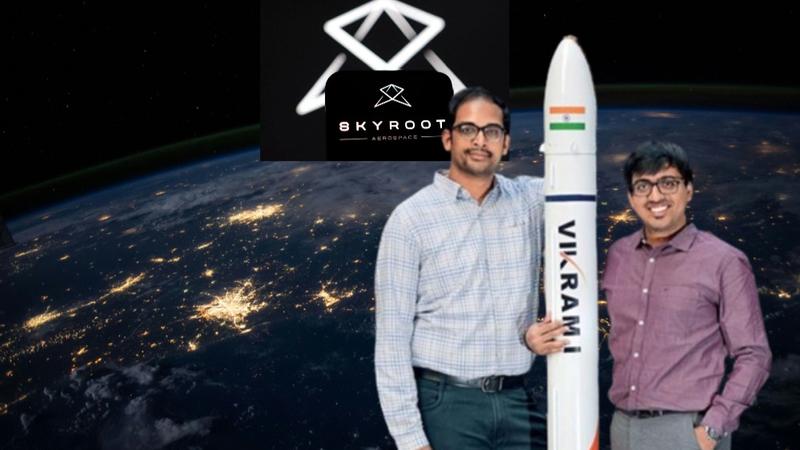Published 11:00 IST, March 29th 2024
Skyroot Aerospace successfully test-fires Kalam-250, 2nd stage of Vikram-1 rocket
Skyroot's earlier milestones include the test-firing of the Kalam-100, the third stage of the Vikram-1 rocket, and the launch of India's first private rocket.

Hyderabad-based Skyroot Aerospace, a pioneer in Indian space tech, has successfully conducted the test-firing of the Stage-2 engine of its Vikram-1 space launch vehicle, known as Kalam-250. The test, conducted at the propulsion testbed of the Indian Space Research Organisation (ISRO) within the Satish Dhawan Space Centre (SDSC) in Sriharikota, Andhra Pradesh, marks a momentous step forward in India's private space industry.
Innovating India's space exploration: A brief journey
Founded in 2018 by Pawan Kumar Chandana and Naga Bharath Daka, Skyroot Aerospace has emerged as a frontrunner in revolutionising space exploration in India. With a vision to democratise access to space, Skyroot has embarked on a mission to push the boundaries of existing technology, making space exploration more accessible and cost-effective.
Funding and strategic partnerships
Skyroot's journey has been fuelled by significant investments and strategic collaborations. The company has raised a total of $99.8 million over seven funding rounds, with prominent investors including Singapore's Temasek and India's GIC, according to data available on Tracxn. Noteworthy milestones include raising $27.5 million in a recent funding round led by Temasek, signalling a growing interest in India's private space sector.

The successful test-fire of the Kalam-250 Stage-2 engine adds to Skyroot's list of milestones. Earlier ones include the test-firing of the Kalam-100, the third stage of the Vikram-1 rocket, and the launch of India's first private rocket, the Vikram-S, in November 2022.
The test, conducted on March 27, 2024, lasted 85 seconds and recorded a peak sea-level thrust of 186 kilonewtons (kN). The Kalam-250 engine, constructed from high-strength carbon composite materials, utilises solid fuel and features an advanced Ethylene-Propylene-Diene terpolymers (EPDM) thermal protection system.
Critical components and contributions

The Stage-2 engine houses a carbon ablative flex nozzle and high-precision electro-mechanical actuators for thrust vector control, ensuring precise trajectory adjustments during flight. Notably, the Vikram Sarabhai Space Centre (VSSC) contributed its proprietary head-mounted safe arm (HMSA) device for the test, emphasising collaborative efforts within India's space ecosystem.
The successful test-fire of the Stage-2 engine paves the way for the upcoming orbital launch of the Vikram-1 rocket. Skyroot is optimistic about conducting the maiden launch by the third quarter of 2024, subject to further testing and preparations.
Updated 11:27 IST, March 29th 2024




